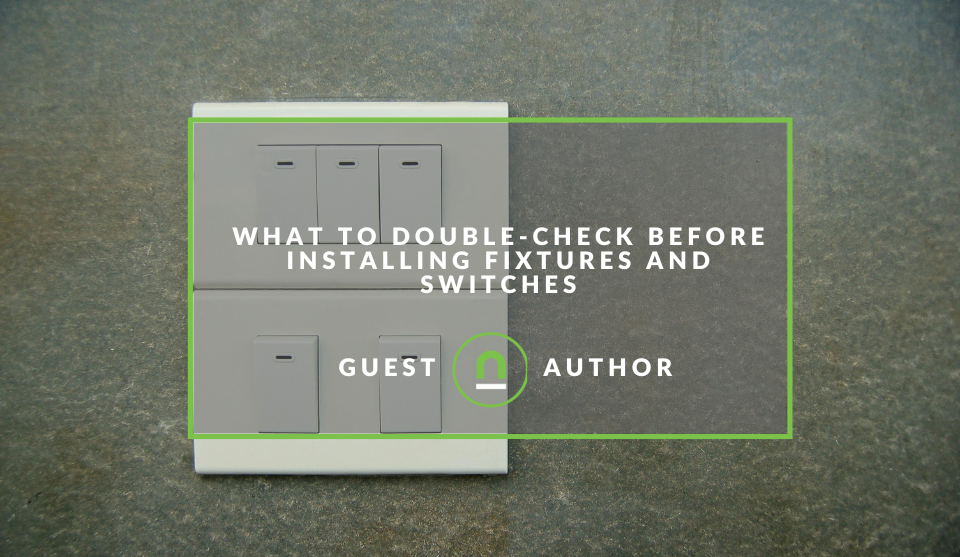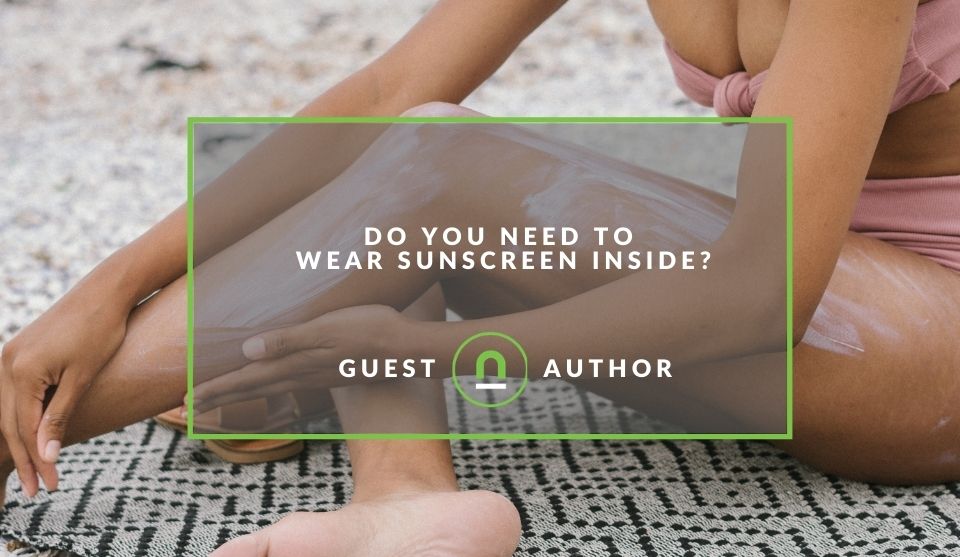Recent posts

Doctors Orders
The Ultimate Dental Care Handbook
21 August 2025

Constructive Criticism
Electric Hoists in The Construction Industry
20 August 2025

Geek Chic
Should You Consider Selling Your MacBook Pro?
19 August 2025

Constructive Criticism
What to Double-Check Before Installing Fixtures and Switches
18 August 2025
Popular posts
Extravaganza
Trending Music Hashtags To Get Your Posts Noticed
24 August 2018
Geek Chic
How To Fix iPhone/iPad Only Charging In Certain Positions
05 July 2020
Extravaganza
Trending Wedding Hashtags To Get Your Posts Noticed
18 September 2018
Money Talks
How To Find Coupons & Vouchers Online In South Africa
28 March 2019
Do You Need To Wear Sunscreen Inside?
25 June 2021 | 0 comments | Posted by Lilly Partin in Beauty Basics
You've probably grown used to the new normal of working from home, social isolation, and minimal time spent in public spaces after months of quarantine. Perhaps you've turned your backyard into an adult summer camp, complete with evenings spent drinking wine from your decanter around a fire pit.
Your favourite movie is playing on your outdoor projection screen at the same time, with high-quality sound coming from your portable Bluetooth speakers.
You are probably aware of the importance of wearing sunscreen outdoors and reapplying it after swimming or working up a sweat.
When you're sitting at home, watching your favourite show, with no plans to leave the house, is it still necessary to use sunscreen?
You can believe that you don't need sunscreen if you get out of bed, get in your car, and drive to work, where you sit at your desk all day. Or maybe you're spending a lazy Sunday binge-watching your favourite show and have no intention of brushing your hair or applying sunscreen.
Is it essential to wear sunscreen inside now that people who work from home spend most of their days indoors? And, if you're working indoors, what's the right sunscreen for your face?
We consulted medical experts to find out the answers to these and other issues, as well as whether or not you should wear SPF indoors.
Why do you need to use sunscreen indoors?
You should wear sunscreen indoors, according to four of the five dermatologists we spoke with regarding the subject.
What is the reason for this?
You're exposing yourself to potentially skin-damaging light if you're sitting near windows or in front of a computer screen. There are three key reasons why you should wear SPF indoors, all of which are related to what you're exposed to:
- Ultraviolet A (UVA) rays
- Ultraviolet B (UVB) rays
- Blue light from smart devices, computers and TVs
Ultraviolet A (UVA) rays vs sunscreen
Ultraviolet radiation, according to the Skin Cancer Foundation, "A rays will penetrate windows and cloud cover," causing signs of ageing such as loss of elasticity and wrinkles. Unfortunately, not all windows have been treated to block the sun's harmful rays. Unless you're in a room with solar window films, there is no need to apply sunscreen.
UVA light contributes to skin cancers by prematurely ageing the skin by breaking down collagen and elastic tissue. Since it does not induce tanning, you can be unaware of how much UVA you expose yourself to each day.
Sunscreen vs Ultraviolet B rays
Ultraviolet B rays, on the other hand, can damage the skin's DNA, triggering an inflammatory reaction that results in red sunburns.
When the cells are damaged beyond repair and die, a sunburn peels, such cells that survive become gradually weakened over time due to exposure, leading to skin cancer.
Sunscreen vs blue light
The blue light emitted by digital displays, such as your monitor, phone, tablet, and television, may have two effects on your skin:
- Blue light can cause melasma and age spots by increasing melanin or pigmentation in the skin.
- Blue light can also produce free radicals, which can cause inflammation and cause the skin's collagen and elastic tissue to break down.
What if you don't want to put on sunscreen while you're inside?
If you ask us, the answer to this problem is straightforward: Take a break from the heat. Close the curtains or get out of your chair.
If you insist on sitting in front of a fan, you should probably apply sunscreen. However, it isn't the only solution to the problem.
When you can't stop the heat, such as when you're at the beach or out running, the possibility of skin cancer dramatically outweighs any theoretical concern about chemical sunscreen exposure.
But what about when you're at home? Close the curtains or leave the room. No additional indoor precautions are needed if you avoid sunlight entering your windows. Unless you work from home in a windowless space, most medical experts we spoke with recommend wearing sunscreen indoors to protect yourself from the sun's harmful rays.
Apply sunscreen every day, whether you plan to be outside or not, to be on the safe side. It will save your skin in the long run.
Tell us your story
Would you like to write for nichemarket just like Lilly has? Find out how to submit a guest post and when you're ready, you can contact us.
Are you looking to promote your business?
South African beauty businesses can create your free business listing on nichemarket. The more information you provide about your business, the easier it will be for your customers to find you online.
Registering with nichemarket is easy; all you will need to do is head over to our sign up form and follow the instructions. If you require a more detailed guide on how to create your profile or your listing, then we highly recommend you check out the following articles.
Recommended reading
If you enjoyed this post and have time to spare why not check out these related posts and dive deeper down the rabbit hole that is beauty and grooming tips.
- Trending Beauty Hashtags To Get Your Posts Noticed
- The Best Websites to Buy Hair Products Online in South Africa
- Brown Spots on Skin: Causes and Treatments
- 7 Ways Your Lifestyle Affects Your Skin
Tags: Skin Care, Guest Post
You might also like
How Travellers Use Transit Time for Self-Care
08 August 2025
Posted by Stacy Minity in Hit the Road
Learn how to turn transit time into a self-care retreat using mindful activities, creative outlets, and relaxation techniques every traveller should ...
Read moreYour Refresher Guide To London
13 August 2025
Posted by Vanessa Rogers in Hit the Road
An updated guide to London's top tourist attractions. Perfect for your next trip, this refresher covers all the must-see spots in the city in 2025 an...
Read more{{comment.sUserName}}
{{comment.iDayLastEdit}} day ago
{{comment.iDayLastEdit}} days ago
 {{blogcategory.sCategoryName}}
{{blogcategory.sCategoryName}}


